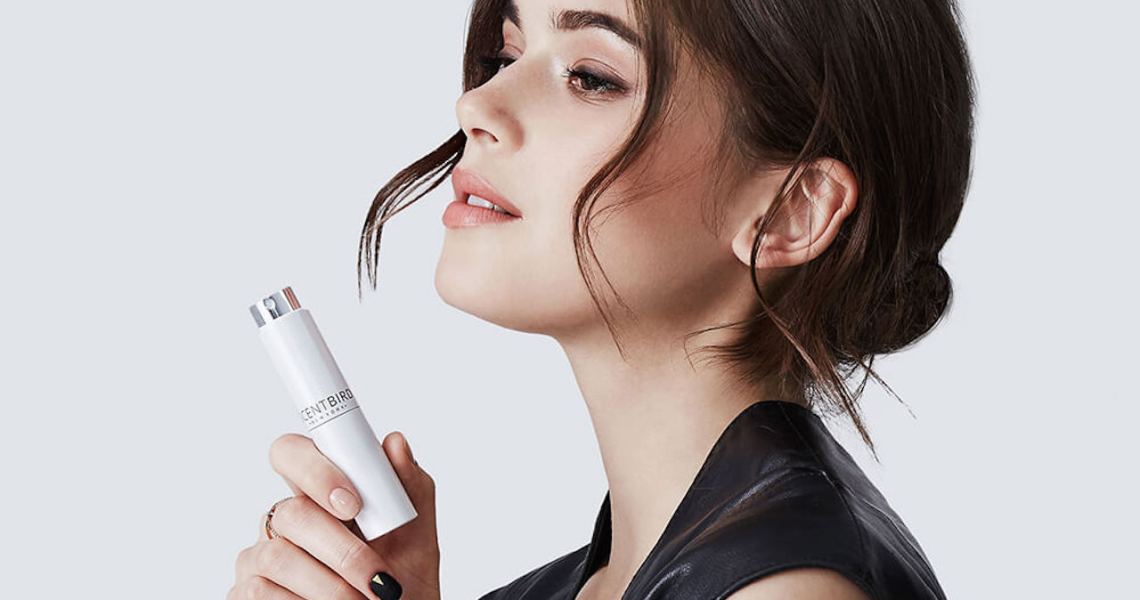Direct-to-consumer, subscription-based fragrance company Scentbird is adding skin care to its offerings in an effort to expand its portfolio.
Beginning March 8, Scentbird, which launched in 2014 with 30-day supplies of fragrances, will sell 50 skin-care items from 13 brands such as Glow Recipe, Patchology, Elemis and Saturday Skin. They will be available in full sizes to Scentbird’s 257,000 subscribers. Scentbird also sells its own line of body care and candles, and it has a separate makeup subscription called Deck of Scarlet. In May 2018, Scentbird raised $18.6 million in a Series A round.
“For a while now, we have known that fragrance is not the only category we can deliver value in,” said Mariya Nurislamova, Scentbird co-founder and CEO. “What we have found out is that our consumer base is very receptive to our other products. Customers are in discovery mode and not just shopping one category.”
The skin-care offering will work the same way that Scentbird’s fragrance subscription does: It will allow customers to pick brands and place them in a queue every month to determine what brands they receive. The subscriptions start at $14.95, and the lineup can consist of fragrances or skin care. Nurislamova expects that in 12 to 18 months, skin care will comprise 40 percent of Scentbird’s revenue. She noted that this growth is dependent on the number of skin-care product choices, with the first 50 accounting for about 10 percent of all Scentbird options.
“I do think building business models that help digitalize beauty will help the industry in general,” she said. “Business models like ours help consumers find better matches and find their next favorite products.”
For the skin-care brands Scentbird is working with, the company offers access to its large subscription base. John Cafarelli, founder and president of skin-care brand Ernest Supplies, said the No. 1 marketing challenge for a small brand like his is getting product in front of and in the hands of potential customers. Ernest Supplies plans to monitor the success of its partnership with Scentbird by looking at social channels, like Instagram, to see who is talking about their products. Scentbird also shares data around the popularity of products, reviews and comments with participating brands. Ernest Supplies has previously done sampling programs with Birchbox and retail partners like Neiman Marcus.
“In the ever-elusive chase of marketing spend ROIs, we like to sift through the noise and focus exclusively on awareness factors,” he said. “For us, social engagement is the ultimate key performance indicator because it effectively amplifies our other marketing efforts and drives sales.”
Ad position: web_incontent_pos1
Scentbird plans on initially raising its own awareness around skin-care through a network of 5,000 influencers. (Fifty percent are paid, according to Nurislamova.) This campaign will begin at the end of February and be ongoing throughout the year. Throughout 2019, Scentbird will build out more tools for the skin-care category, in order to make the shopping experience easier. This includes a recommendation quiz that asks about consumer preferences, skin type, skin concerns and existing favorite products. There will also be a “smart filtering system,” which will be similar to Scentbird’s existing tool for fragrance, where people can search by ingredient, category or concern. Finally, there will be curated skin-care collections based on a particular trend, like CBD.
“Skin care historically is not an easy category to crack, because it’s not visually engaging,” said Nurislamova. “Younger consumers are using more skin-care products beyond anti-acne, and there is more loyalty in the skin-care segment. But the younger consumer is still searching for brands and products to trust; in their 20s and 30s, they are in a search-and-discover mode.”




